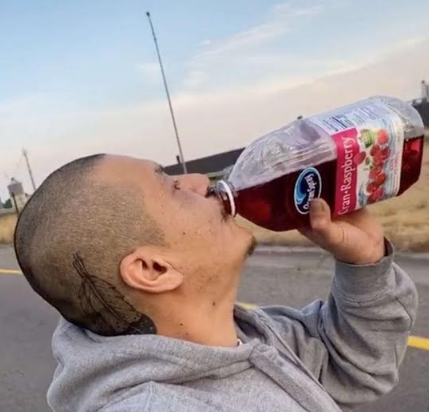
- Details
- By Darren Thompson
IDAHO FALLS, Idaho — Last Friday, the mayor of Idaho Falls officially proclaimed Jan. 22, 2021 as Nathan Apodaca Day, recognizing the TikTok sensation’s powerful and positive impact on countless people through his creative use of social media.
Since Apodaca, Arapaho, went viral in September 2020 on TikTok, the famous video of him longboarding while sipping Ocean Spray and lip-syncing Fleetwood Mac’s “Dreams” after his truck broke down on his way to work has more than 73 million views on the popular social media platform. His video inspired millions of people to recreate their own version of the video, making it the second most viewed clip in the world on TikTok’s list of top 2020 viral videos.
“Despite his new-found fame and fortune, Apodaca has continued to create videos in and around Eastern Idaho, highlighting his home city of Idaho Falls,” read the Nathan Apodaca Day proclamation. He was invited to participate in President Joe Biden’s virtual inauguration parade last week, where he created a video in Idaho Falls, helping him introduce Idaho Falls to a worldwide audience.
“Blessings continue to come on this journey,” said Nathan Apodaca to Native News Online. “A day named after me is beyond my wildest dream.”
Idaho Falls Mayor Rebeca Casper noted in her proclamation that Apodaca has donated to the local community, including the Idaho Falls Humane Society, Idaho Falls Rescue Mission, and others.
“When it came to my attention that he was doing more than just being famous, that he was actually giving back to this community and that he was making sizable contributions to charitable organizations, that told me he was a man of character, not just somebody that was good at longboarding,” Mayor Casper told the Post Register last Friday.
Apodaca, who’s half Arapaho, has launched a clothing line at the national retailer Zumiez, highlighting his love for Native culture. He previously told Native News Online that he wanted to remind people that Native people are still here, “still vibing.”
More Stories Like This
Native News Weekly (August 25, 2024): D.C. BriefsDeb Haaland Earns Endorsement From Communications Workers of America Local 7076
University Soccer Standout Leads by Example
Two Native Americans Named to Democratic Congressional Campaign Committee's“Red to Blue” Program
Cheyenne River Youth Project Hosts Young Women’s Winter Camp as Part of Lakota Culture Internship
Help us defend tribal sovereignty.
At Native News Online, our mission is rooted in telling the stories that strengthen sovereignty and uplift Indigenous voices — not just at year’s end, but every single day.
Because of your generosity last year, we were able to keep our reporters on the ground in tribal communities, at national gatherings and in the halls of Congress — covering the issues that matter most to Indian Country: sovereignty, culture, education, health and economic opportunity.
That support sustained us through a tough year in 2025. Now, as we look to the year ahead, we need your help right now to ensure warrior journalism remains strong — reporting that defends tribal sovereignty, amplifies Native truth, and holds power accountable.
 The stakes couldn't be higher. Your support keeps Native voices heard, Native stories told and Native sovereignty defended.
The stakes couldn't be higher. Your support keeps Native voices heard, Native stories told and Native sovereignty defended.
Stand with Warrior Journalism today.
Levi Rickert (Potawatomi), Editor & Publisher
